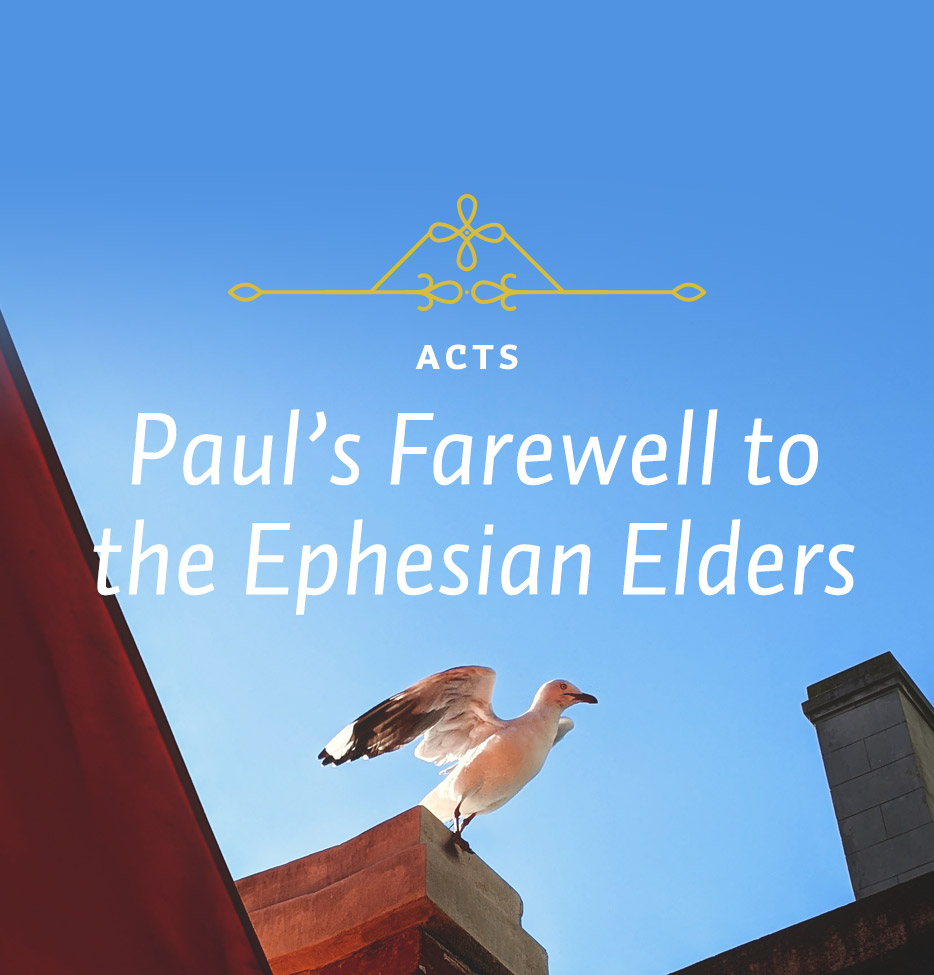The second thing Paul says about himself in his testimony before the Ephesian elders is that, as he served among them with humility, he also did so with tears. Paul mentions this twice in the chapter. It is in verse 19, but you also find it in verse 31: “Remember that for three years I never stopped warning each of you night and day with tears.” Obviously this was something of considerable importance to him, though, as far as I know, this too is not referred to elsewhere.
I do not think this means that Paul was what we would call a “weepy” person. We know people like that, people who for one reason or another are inclined to be emotional. They tend not to be terribly effective in working with other people.
I think that, when Paul says he served the Lord with tears, he does not mean that he was given to frequent outbursts of emotion, except perhaps in prayer. He means that he was what we would call “a man of great empathy.” That is, he learned to identify with those to whom he ministered. We are told in Romans that we are to “rejoice with those who rejoice” and “mourn with those who mourn” (Rom. 12:15). Paul obviously did that himself. If somebody was happy, he was happy with them because he was happy for them. If someone was weeping, Paul could weep with them, because he identified with them and to some extent could live what they were going through.
Francis Schaeffer made a great deal of tears. He believed in the need to separate from unbelief. But always he said, “If we separate, it must be with tears. And if we speak truth that hurts, it must be with tears.” He was right in that. He meant that we must empathize with others.
Have you ever asked why Paul was so effective as he went through the Greek and Roman world planting churches? Was it his preaching? Yes, of course. His preaching was strong. We are going to come to that in a moment. He taught them the whole counsel of God, and God blessed them through His Word. But I sense that Paul’s success also had a great deal to do with the empathy he had for other people. He struggled with them in their struggles and grieved with them in their griefs. They remembered this and recognized that in Paul there was something they did not see in the world around them.
After reminding the elders of the attitude with which he had done his work, Paul spoke of his chief function, which was to teach and preach the Bible. He says a great deal about this and rightly so, because it is what he was chiefly called to do. As I look at this, I see at least five things that he has to say about his preaching. Let’s discuss two of them now.
1. He preached publicly (v. 20). We know that already, because earlier in Acts we saw what he did in Ephesus. He rented the hall of Tyrannus and lectured there every day from what one of the marginal notes says was from eleven o’clock in the morning until four in the afternoon—five hours every day. That was a lot of public teaching.
2. He preached privately (v. 20). That is, he went from house to house with his message. To use our terms for it, I think it means that he did house to house visitation.
There is an interesting book that was written in England by a man named Richard Baxter. It is called The Reformed Pastor (1656), and it is essentially an exposition of Acts 20:28. Or to put it another way, it is about methodology for ministry. Baxter’s chief point in this book, something that he had developed in his own ministry in a rather backward section of England, was that the minister should go from house to house, visiting his parishioners and catechizing them, that is, taking them through the questions of the Westminster Shorter and Larger Catechisms on a regular basis as a family. Under Baxter’s ministry the church prospered in that community, and it was reported that there was a time when, as one walked through the streets of that city, most of the people would have been known as true Christians and on a Sunday could even be heard singing psalms. I do not know if that could be done today. Our churches are large. Our communities are scattered. Families are busy.
But if this says nothing else to us, it at least says that Paul was not above this sort of work. He did not say to himself, “I am a great preacher and scholar. I stand before masses of people. It would be beneath me to take time to visit somebody’s home and try to help them on a one-to-one basis.” God’s great servants have always recognized that what happens on a one-to-one basis or in small groups is often in the providence of God of much greater significance than what happens in large mass meetings.






